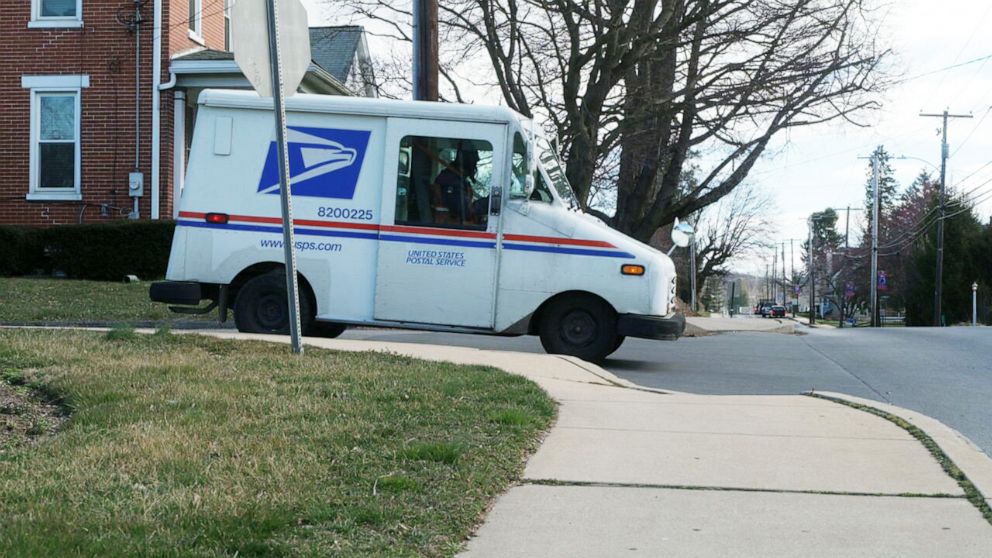最高法院周二似乎同意有必要澄清一项长期存在的规则,即美国雇主必须适应宗教习俗但没有暗示一名前美国邮政服务邮递员应该重返工作岗位。
该案件可能会对美国各地的工作场所产生影响,涉及福音派基督徒杰拉尔德·格罗夫(Gerald Groff),他因跳过周日轮班以遵守安息日,而不是按照分配为亚马逊递送包裹而受到美国邮政总局的处分。他后来辞职了。
格罗夫的律师亚伦·斯特里特告诉法官说:“员工不应该被迫在信仰和工作之间做出选择。”。
美国邮政管理局表示,格罗夫的缺席给他的同事和业务运营带来了巨大的负担——特别是在他位于宾夕法尼亚州农村的邮局的假日投递高峰期——这打击了士气,并导致数名员工辞职或搬迁。
“下级法院在这些事实上正确地发现了‘不适当的困难’,”拜登政府副检察长伊丽莎白·普雷洛加(Elizabeth Prelogar)说,她为该机构的政策辩护。“请愿人的工作明确要求他在星期天工作。
“他的缺席对其他邮递员造成了直接的具体负担,他们不得不加班加点来投递邮件,”她说。
1965年《民权法案》第七章禁止基于宗教的就业歧视,除非雇主能够证明“合理地便利”雇员会对他们的业务造成“不适当的困难”。
最高法院在46年前的TWA诉Hardison一案中解释说,这一标准的含义不仅仅是商业运作的“最低成本”。这是一个非常低的门槛,宗教自由倡导者认为这是对有信仰的人的歧视。
大多数法官在口头辩论中建议,法院的先例应该更加严格,提高对雇主的要求,以适应宗教仪式,同时平衡企业赚钱的需要。
几位法官指出,格罗夫的案件应该发回下级法院,根据明确的标准重新审理。然而,还不清楚大多数法官是否认为USPS有义务适应他周日的缺席。
布雷特·卡瓦纳格大法官多次表示,法院应该利用“大量的额外成本”——在1977年哈德森判决的脚注中找到——作为超过雇主“最低限度成本”的定义。
艾米·科尼·巴雷特法官认为,宗教和解可能带来的士气或人员的变化——尽管难以量化——也需要加以考虑。
“在一个工作场所,你可能会有许多宗教人士在周日休息时寻求同样的住宿,”她说,“士气可能非常重要。”
Prelogar认为,法官应该明确指出,任何时候雇主被迫定期支付“额外工资”(加班)或由于宗教通融而经常人手不足,都将被视为“过度困难”。
索尼娅·索托马约尔大法官也许最不赞同格罗夫的观点,他建议法院应该尊重法律条文,让下级法院自行解释标准。
“我清楚什么...我们无法给出(清晰的)答案,因为这一切都是有关联的,”她说。"我们能做的最好的事情就是按照国会告诉我们的去做。"
凯坦吉·布朗·杰克逊法官似乎也不愿接受对现状的彻底改变,他指出,如果国会想澄清联邦反歧视法,它早就应该澄清了,但却没有。
法院的几名保守派也对他们的决定走得太远感到不安。卡瓦诺似乎对以雇主的底线为代价广泛扩大宗教自由的裁决感到不安。
卡瓦诺说:“我认为这个案件让事情变得更加困难的一点是,双方都可能有宗教利益。”
“我在这里寻找共同点,”法官尼尔·戈萨奇宣布,他指出,政府和格罗夫似乎都同意规则需要更新。
“一些法院采用了‘微量’的语言,并执行它,”Gorsuch说。也许我们应该“澄清‘微量’并发回下级法院,然后了结此事。”
大法官埃琳娜·卡根插话道:“我很高兴我们能在一起聊天!”
Prelogar面无表情,“我的论点并不总是这样。”
预计法院将在6月底对此案做出裁决。
Supreme Court may require employers to be more accommodating of religion
The Supreme Court on Tuesday appeared to agree on the need to clarify a long-standing rule for when U.S. employers mustaccommodate the religious practicesof employees but stopped short of suggesting a former U.S. Postal Service letter carrier deserves his job back.
The case, which could have an impact on workplaces across America, involves Gerald Groff, an evangelical Christian, who was disciplined by USPS for skipping Sunday shifts to observe the Sabbath rather than deliver packages for Amazon as assigned. He later resigned.
"Employees should not be forced to choose between their faith and their job," Groff's attorney Aaron Streett told the justices.
The Postal Service has said Groff's absences created a significant burden on his coworkers and business operations -- especially during the peak holiday delivery season at his rural Pennsylvania post office -- harming morale and driving several staff to resign or relocate.

The U.S. Postal Service delivers mail 6 days a week, except Sundays, but in 2015 the agency contracted with online giant Amazon to deliver some of its packages on Sundays.
ABC News
"The lower courts correctly found 'undue hardship' on these facts," said Biden administration Solicitor General Elizabeth Prelogar, who was defending the agency's policy. "Petitioner's job specifically required him to work on Sundays.
"His absences created direct concrete burdens on other carriers who had to stay on their shifts longer to get the mail delivered," she said.
Title VII of the Civil Rights Act of 1965 prohibits discrimination in employment on the basis of religion unless an employer can show that "reasonably accommodating" the employee would create "undue hardship" on their business.
The Supreme Court interpreted that standard 46 years ago in the case TWA v. Hardison to mean anything more than a "de minimis cost" on business operations. It's a very low bar that religious freedom advocates say discriminates against people of faith.
A majority of justices suggested during oral arguments that the court's precedent should be tightened -- raising the requirement for employers to accommodate religious observance while balancing the business's need to make money.
Several justices indicated that Groff's case should be sent back to lower courts for reconsideration under the clarified standard. It was not clear, however, whether a majority of justices believed USPS was obligated to accommodate his absences on Sundays.
Justice Brett Kavanagh repeatedly said the court should utilize "substantial additional costs" -- found in a footnote of the 1977 Hardison decision -- as the definition of what would exceed a "de minimis cost" to employers.
Justice Amy Coney Barrett suggested that changes in morale or staffing that might follow from a religious accommodation -- though difficult to quantify -- would also need to be considered.
"You might have many religious people in a workplace seeking the same accommodation for Sundays off, " she said, "and morale could be very important."
Prelogar argued that the justices should make clear that any time an employer would be forced to regularly pay a "premium wage" (overtime) or regularly operate shorthanded as a result of religious accommodation would qualify as an "undue hardship."
Justice Sonia Sotomayor was perhaps least sympathetic to Groff's arguments, suggesting the court should defer to the letter of the law and leave it to lower courts to continue interpreting the standard on their own.
"What's clear to me... is there is no [clarity] we can give because it's all contextual," she said. "The best we can do is do what Congress told us to do."
Justice Ketanji Brown Jackson also appeared hesitant to embrace sweeping changes to the status quo, noting that Congress could long ago have clarified federal anti-discrimination law if it wanted to but did not.
Several of the Court's conservatives also flashed uneasiness with going too far in their decision. Kavanaugh appeared uncomfortable with a ruling that would broadly expand religious freedom at the expense of an employer's bottom line.
"One thing about this case that I think makes it a little more difficult is that there can be religious interests on both sides," Kavanaugh said.
"I'm looking for common ground here," declared Justice Neil Gorsuch, who pointed out that both the government and Groff appeared to agree that the rules needed to be updated.
"Some courts have taken the 'de minimis' language and run with it," Gorsuch said. Perhaps we should "clarify 'de minimis' and remand back to the lower court and be done with it."
Piped in Justice Elena Kagan: "I'm happy we're all kumbayahing together!"
Prelogar deadpanned, "My arguments don't always go that way."
The court is expected to rule in the case by the end of June.






